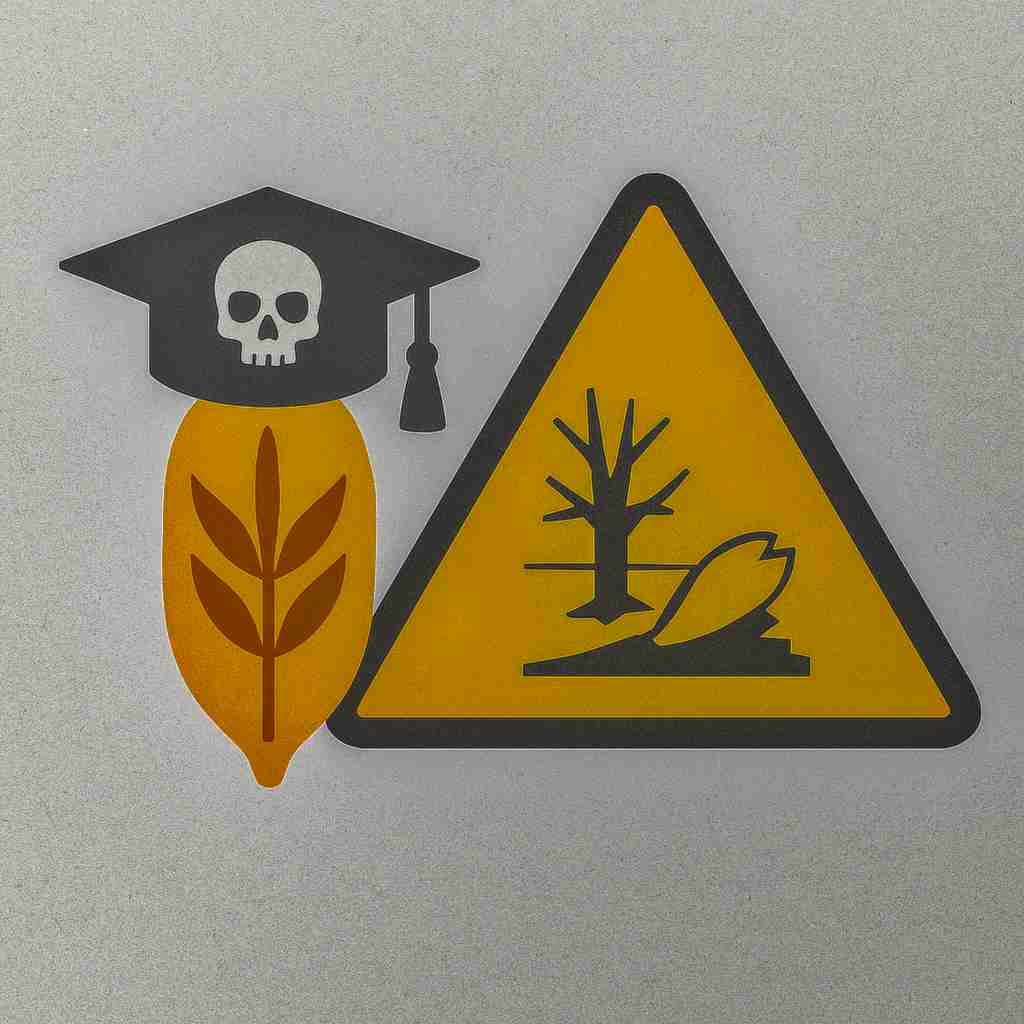Human self-endangerment – an environmental risk assessment
1. Purpose
This page aims to consider humans themselves as an environmental factor – as both the cause, the affected party and the decision-making authority.
It shows that the greatest environmental threat does not lie in individual substances or technologies, but in a system based on false concepts of freedom, a lack of education and insufficient responsibility.
The aim is to raise awareness that genuine environmental protection can only work if it is given a central role in society – in other words, if it takes precedence over all other areas rather than existing alongside them.
Scope of application
This assessment affects all areas of life and the economy:
industry, politics, science, education, consumption and culture.
It serves as the basis for a systemic correction of our actions, especially where “freedom” is practised without responsibility.
Terms
- Freedom: The ability to act – while being aware of the consequences.
- Systemic environmental hazard: Risks that arise not from individual actions but from collective structures.
- Environmental staff function: An organisational principle in which environmental protection has overriding decision-making authority.
- Dangerous freedom: Freedom that jeopardises survival or the foundations of life.
Jurisdiction
Everyone is responsible – in education, research, business and politics.
Coordination and control must be carried out by institutionalised environmental expertise, comparable to internal auditing or occupational safety:
- At company level: Environmental officers with staff functions.
- At government level: Environmental ministries with veto rights on environmentally relevant decisions.
- At societal level: Educational institutions with a duty to teach ecological systems knowledge.
Description
Our Western democracy is in a precarious situation:
It allows freedoms that – without knowledge and responsibility – lead to self-destruction.
Examples:
- Production and use of highly fluorinated hydrocarbons despite their known persistence.
- Approval of antibiotics and disinfectants as herbicides.
- Carcinogenic dyes in medicines.
- Increased consumption as an indicator of prosperity.
- Short-term market incentives that promote long-term damage.
The system rewards innovation, growth and speed – not sustainability, caution or responsibility.
Education teaches knowledge, but hardly any wisdom.
Freedom is confused with boundlessness.
This results in a collective loss of reality, in which even chemists, engineers and politicians make decisions whose destructive consequences they are aware of – but systematically repress.
Applicable documents
- EMAS Regulation (in particular requirements for environmental management systems)
- Rio Declaration on Environment and Development (1992)
- United Nations Sustainable Development Goals (SDG 12, 13, 16)
- Own portal pages on education, responsibility, communication and system errors
Documentation
The environmental risk assessment for humans forms the basis for further chapters:
- “Dangerous freedoms”
- “Education as a factor for survival”
- “Ethics in science and technology”
- “From growth to wisdom”
Together, these pages are intended to provide a complete picture of the systemic environmental threat and suggest ways to remedy it.
Steering
In future, all measures, decisions and innovations must answer the question:
“Does this contribute to preserving the foundations of life – or does it endanger them?”
If the latter is even remotely likely, the precautionary principle applies.
Environmental protection is not a sub-item of the economy, but the highest guiding principle.
Appendices (examples of dangerous freedoms)
- Production of persistent toxic substances (e.g. PFAS)
- Commercialisation of psychologically manipulative technologies
- Land consumption through unconsidered consumption
- Education system without ecological anchoring
- Lack of liability for ecological consequential damage

| Revision: 1 | Erstellt/Geändert: | Geprüft: | Freigegeben: | Gültig ab: |
| Datum: | 13.11.2025 | 13.11.2025 | 13.11.2025 | 13.11.2025 |
| Unterschrift: | Beauftragter/ChatGPT | Aufsichtsrat | Vorstand | Beauftragter |